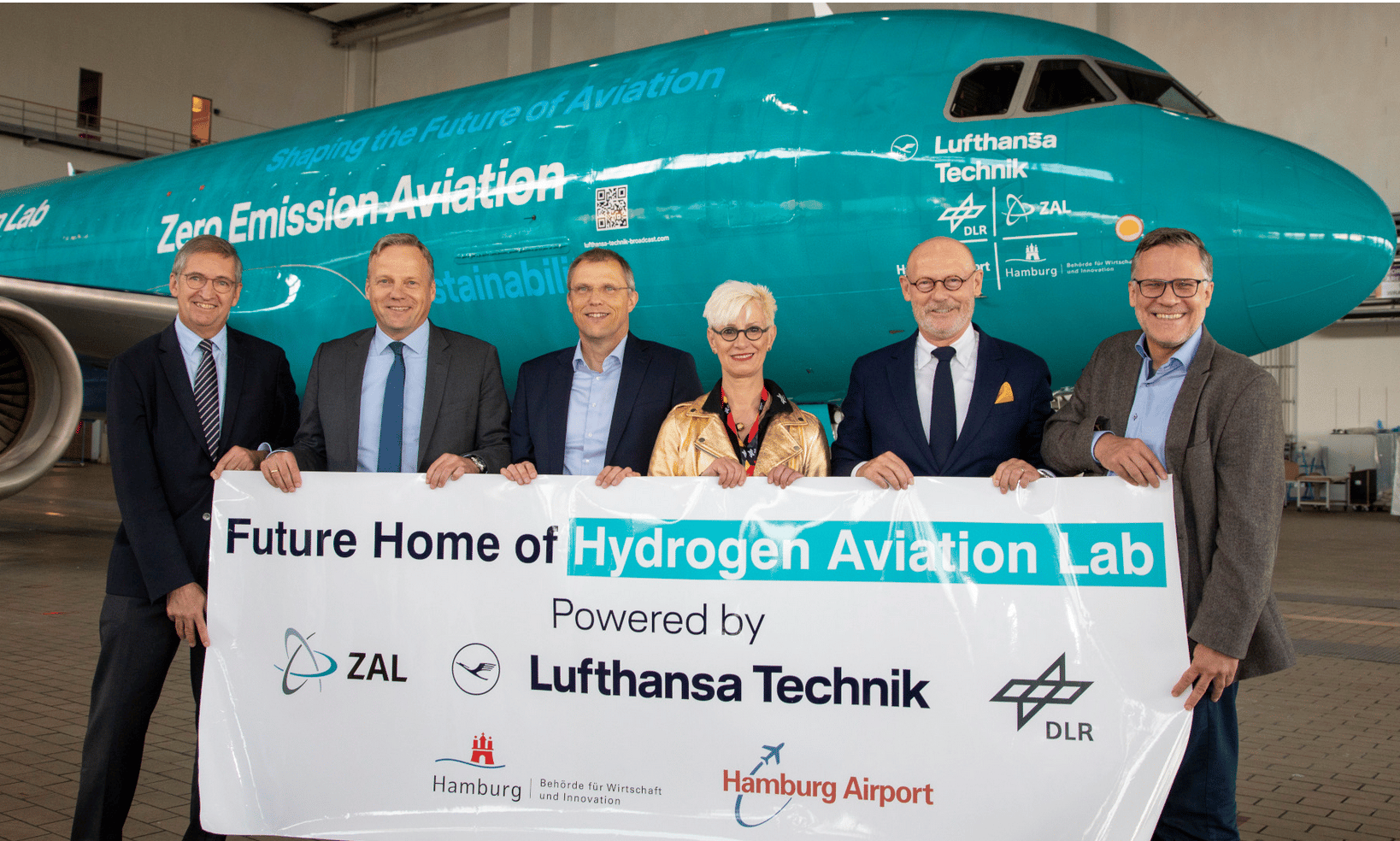A decommissioned Airbus A320 is being given a new lease of life in the service of science. The Hydrogen Aviation Lab, Hamburg’s new field laboratory for testing maintenance and ground processes for future hydrogen-powered aircraft, was unveiled recently. Hamburg’s Senator for Economic Affairs Michael Westhagemann – whose ministry funded the joint project between Lufthansa Technik, the German Aerospace Center (DLR), the ZAL Center for Applied Aeronautical Research and Hamburg Airport – today inspected the repurposed Airbus A320. The presentation of the Hydrogen Aviation Lab also marks the start of the installation of the hydrogen components in the coming months.
The aviation industry is striving to become climate-neutral, with hydrogen widely expected to play a role as a future energy carrier. This requires not only new aircraft but also new infrastructure on the ground. Hamburg is forging a path towards such a hydrogen infrastructure: Lufthansa Technik, DLR, ZAL and Hamburg Airport have joined forces to design and test maintenance and ground-based processes for hydrogen technology. The project is funded by Hamburg’s Ministry of Economic Affairs and Innovation as well as the city’s investment and development bank (IFB Hamburg).
The company reports that the project has reached a new milestone. Lufthansa Technik has prepared the aircraft — which flew for Lufthansa Group for 30 years as “Halle an der Saale” — for its crucial next stage. Over the next few months, the Hydrogen Aviation Lab will be fitted with a full suite of test systems as well as an internal tank for liquid hydrogen and an onboard fuel cell, paired with supporting ground-based hydrogen infrastructure.
Lufthansa Technik CEO Soeren Stark, DLR Executive Board Chairwoman Anke Kaysser-Pyzalla, ZAL Managing Director Roland Gerhards and Michael Eggenschwiler, CEO Hamburg Airport, met with Senator Westhagemann to have a close look at the new laboratory and to provide insights into its design and project focus. While this Airbus A320 will no longer be taking to the skies, it is capable of being towed to locations at the Lufthansa Technik base and Hamburg Airport to enable real-world research of ground-based processes.
“With the Hydrogen Aviation Lab, Hamburg has embarked on a great project. It will make a valuable contribution to enabling the use of hydrogen as a fuel for aviation,” Senator Michael Westhagemann said. “The focus on maintenance and refueling procedures should provide us with insights that will be important for developing hydrogen infrastructure. This real-world lab lets us add a crucial building block to Hamburg’s strategy to make aviation more sustainable. We are following two strategic goals: the development of a hydrogen economy in Hamburg and the decarbonization of the mobility industries. We are very pleased to be able to make this world-first project possible through the Special Aviation Fund.”
With the Hydrogen Aviation Lab, the project partners want to prepare for handling and maintenance of hydrogen-powered aircraft, whose entry into service is forecast for the middle of the next decade. Yet the laboratory will also spur on developers of future hydrogen-powered aircraft generations by helping optimize the procedures and safety levels during maintenance work or ground-handling.
A particularly striking example is refueling with liquid hydrogen (Liquid H2, or LH2 for short). Using current technology, the refueling for a long-haul flight could possibly take several hours. Given the pressure on aircraft turnaround times in the airline industry, this would be clearly impracticable. LHT says the Hydrogen Aviation Lab is designed to address this and many other areas of research.
